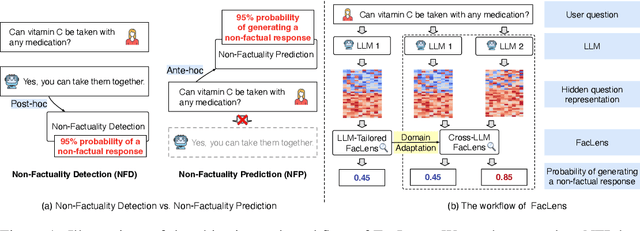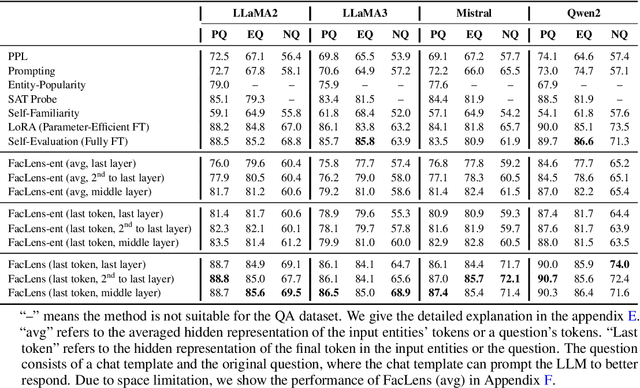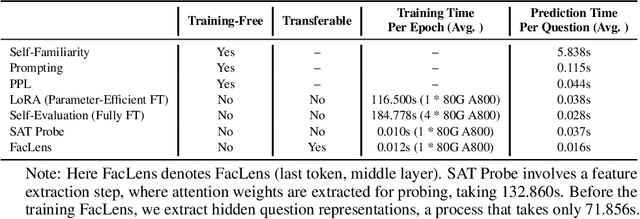Hidden Question Representations Tell Non-Factuality Within and Across Large Language Models
Paper and Code
Jun 08, 2024



Despite the remarkable advance of large language models (LLMs), the prevalence of non-factual responses remains a common issue. This work studies non-factuality prediction (NFP), which predicts whether an LLM will generate non-factual responses to a question before the generation process. Previous efforts on NFP usually rely on extensive computation. In this work, we conduct extensive analysis to explore the capabilities of using a lightweight probe to elicit ``whether an LLM knows'' from the hidden representations of questions. Additionally, we discover that the non-factuality probe employs similar patterns for NFP across multiple LLMs. Motivated by the intriguing finding, we conduct effective transfer learning for cross-LLM NFP and propose a question-aligned strategy to ensure the efficacy of mini-batch based training.
 Add to Chrome
Add to Chrome Add to Firefox
Add to Firefox Add to Edge
Add to Edge